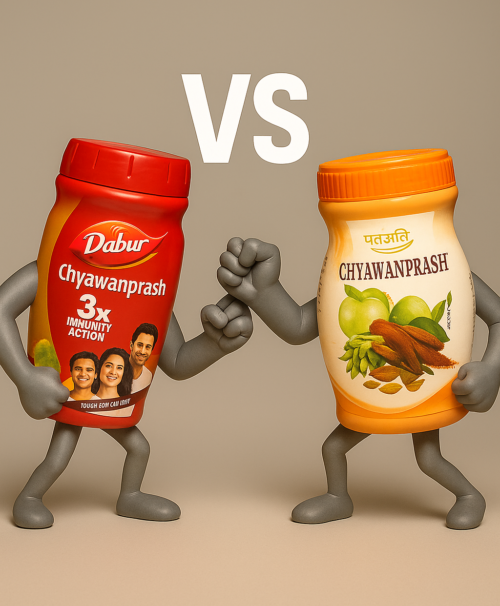In a significant development in the ongoing legal battle between two leading Ayurvedic product manufacturers, the Delhi High Court has restrained Patanjali Ayurved from airing or publishing any advertisements that disparage Dabur Chyawanprash. The interim order, passed by a bench headed by Justice Mini Pushkarna, came after Dabur sought urgent relief against what it called misleading and defamatory advertising by Patanjali.
The court’s ruling followed a petition filed by Dabur India Limited, which raised concerns about a series of television advertisements aired by Patanjali. According to Dabur, these advertisements not only promoted Patanjali’s own Chyawanprash but also made false claims that undermined the credibility and safety of Dabur’s product.
Dabur’s legal counsel, Senior Advocate Sandeep Sethi, alleged that Patanjali had continued to air thousands of such commercials, even after being served summons in the case in December last year. Specifically, Dabur claimed that Patanjali aired as many as 6,182 advertisements within just one week, many of which allegedly misrepresented Dabur’s formulation and quality.
One of the key contentions raised by Dabur was that Patanjali claimed its Chyawanprash was made using more than 51 herbs, whereas the actual number was 47. Sethi also argued that Patanjali’s product contained traces of mercury, which posed a risk, particularly for children, and made it unfit for consumption. He asserted that Patanjali’s repeated claim that only those with Vedic and Ayurvedic knowledge could produce authentic Chyawanprash was an attempt to question Dabur’s legacy and market leadership.
Dabur, which currently commands over 61% of the Chyawanprash market, argued that being referred to as “ordinary” in the advertisements amounted to brand disparagement. “They call us ordinary despite our legacy and market share. This isn’t comparative advertising, it’s targeted defamation,” said Sethi during the hearing.
Representing Patanjali, Senior Advocate Jayant Mehta countered the claims, maintaining that all ingredients used in Patanjali’s Chyawanprash comply with Ayurvedic standards. He denied the allegation that the product contained harmful substances and insisted that the advertisements did not breach any advertising norms or legal boundaries.
Despite these arguments, the court sided with Dabur for the time being, observing that the allegations pointed toward a clear case of disparagement. Justice Pushkarna granted interim relief to Dabur and barred Patanjali from continuing with the said advertisements until the next hearing, scheduled for July 14.
The rivalry between Dabur and Patanjali has intensified over the past year, particularly in the lucrative Ayurvedic and wellness product segment. While both companies have long claimed adherence to traditional Ayurvedic formulations, this legal face-off highlights the growing competition in the FMCG health sector, where branding and public perception can significantly impact consumer trust.
As the matter progresses, the court is expected to further examine the advertising content and verify the claims made by both sides. The outcome may set a precedent for future advertising disputes in the Ayurvedic and natural health product industry.








